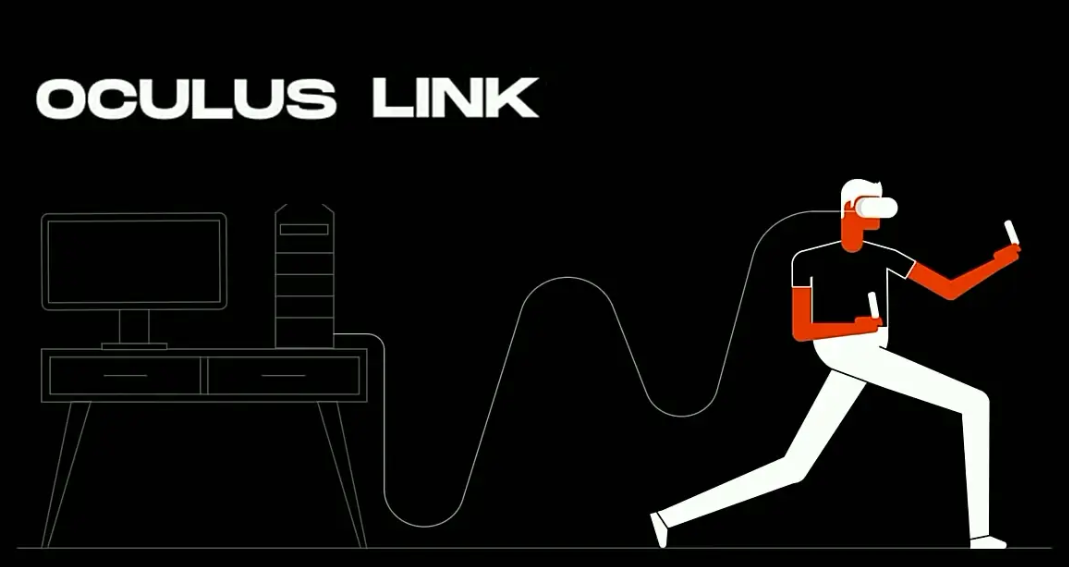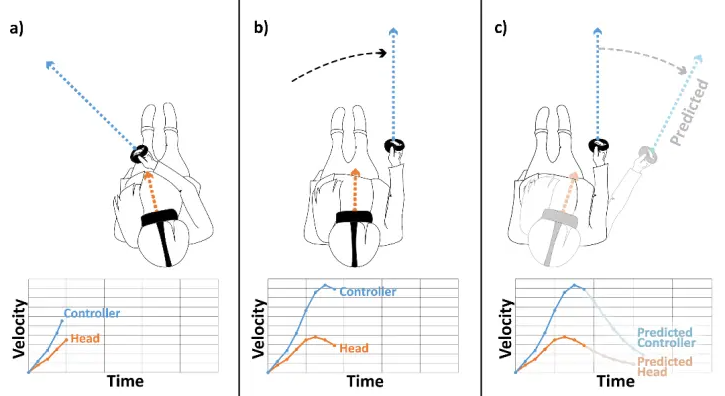Latest Oculus Link Update Improves Tracking Prediction
Facebook has rolled out the latest Oculus Link v18 update that improves Link’s tracking prediction. According to Facebook, the new update will improve “visual stability of up-close content under fast head motion”.
The v18 update for the Oculus PC app is set to improve accuracy of positional tracking prediction in Oculus Link. According to Facebook, it will result in improved translation accuracy on the predicted poses which will lead to improvements in the “visual stability of up-close content under fast head motion.”

The Oculus Link feature enables users to connect their headset to a VR-ready PC and to thus use the standalone virtual reality headset as a PC VR headset via a USB 2.0 or USB 3.0 cable. This allows Quest owners with gaming PC to gain access to both the Rift and SteamVR libraries.
In spite of the physical connection, the Oculus Link mode of working is still different from that of the regular PC VR headsets such as Valve Index and Oculus Rift S. In those PC VR headsets, a rendered frame is transmitted raw straight from the GPU to the displays through a HDMI or a DisplayPort.
However, a USB connection doesn’t have the bandwidth to render raw video frames at a resolution that is VR-suitable. To render its function, the Oculus Link connection first decompresses (encodes) every frame. When this decompressed frame arrives at the Quest headset, it is first decompressed (decoded) by the Snapdragon processor in the headset. The compression (encoding) and decompression (decoding) takes time which results in a higher latency in Link than you would get with a “real” PC VR headset like Valve Index or Rift (S).
A Quest owner will not notice this latency when they are rotating their heads as the headset will warp the decoded frame to the direction in which the head is rotated since the beginning of the rendering, a process called TimeWarp. When a user is moving their heads or the controllers around, the delay that elapses until they begin to see the movement can be noticeable.

One of the principal ways of reducing the perceived latency in Virtual Reality systems is prediction. Before every frame is rendered, the system has to make a decision on the position in the virtual world that it should use as the perspective. Because the rendering process takes time, the best position is usually where the head of the user will be when rendering is complete.
These prediction algorithms are sometimes crafted by hand and they can be powered by Machine Learning. The algorithms try to determine where the user’s head will be after the rendering period has elapsed. This is usually based on its most recent position as well as other factors such as past movement and the present acceleration.

Because the Link frames also need encoding and decoding, the prediction algorithm used must look even further into the future than is usual.
From the patch note released yesterday, it appears as if Facebook is tweaking its algorithms so they can generate more accurate results through this longer prediction interval. Facebook is already leading the way in machine learning development but it is not clear yet whether that has been relevant to the latest change.
The v18 update is already available on the Public Test Channel. Users must navigate the Beta tab in the Oculus PC app’s settings in order to opt into the update. Once you do, it will begin downloading in the Library tab.
When you toggle between the v17 and v18, there will be a small but perceptible decrease in the perceived positional tracking. For Oculus Quest headset owners already using Link to access the massive content cache in the Rift and SteamVR libraries, this should be good news.
Source: UploadVR
https://virtualrealitytimes.com/2020/06/05/latest-oculus-link-update-improves-tracking-prediction/https://virtualrealitytimes.com/wp-content/uploads/2019/12/Oculus-Link-Outline-600x318.pnghttps://virtualrealitytimes.com/wp-content/uploads/2019/12/Oculus-Link-Outline-150x90.pngHardwareOculus QuestTechnologyVR HeadsetsFacebook has rolled out the latest Oculus Link v18 update that improves Link’s tracking prediction. According to Facebook, the new update will improve “visual stability of up-close content under fast head motion”. The v18 update for the Oculus PC app is set to improve accuracy of positional tracking prediction in...Sam OchanjiSam Ochanji[email protected]EditorVirtual Reality Times - Metaverse & VR
